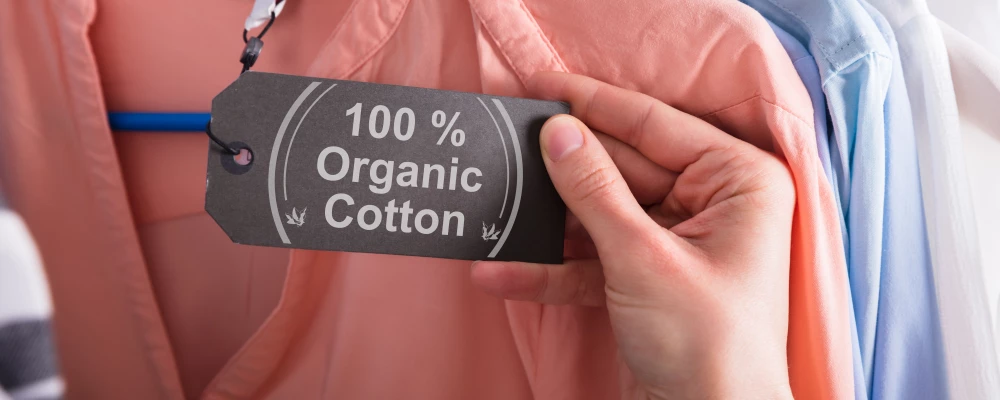
Highlights From The Virtual Oxford Real Farming Conference 2020 - Part Two
In this article, and in the part one of our write up, we take a look at a few of the key sessions for us from 2021's Oxford Real Farming Conference. Here we look at the organic market: how to build resilience and what tools can be used to bring lasting change?
Head to part one here, and keep an eye out for part three.
The Organic Market: Building Resilience
COVID-19, Brexit and economic disruption are changing the UK sustainable food and drink markets, presenting new opportunities and challenges for organic farmers. Though we are here on The Sustainable Fashion Collective to talk about textiles and fashion, the way that organic markets fluctuate and are perceived, are integral to raising the awareness on its importance.
This ORFC session outlines emerging trends in organic food and drink, and explores how farm businesses are adapting to build resilience in a time of change. It was hosted by the Soil Association.
Speakers: Finn Cottle (Trade Consultant, Soil Association), Wilma Finlay (Managing Director, The Ethical Dairy), Rob Haward (Managing Director, Riverford Organic)
Chair: Sophie Kirk
Notes: Overview performance of UK market Outlook for future opps and challenges for organic food and farming businesses two flagship farm-based businesses adapting
Soil Association:
- Coronavirus means that organic produce has increased in sales through customer awareness of its health implications.
- Overall in the EU, countries reset their relationship with nature due to the pandemic.
- Organic sales record largest rise in more than a decade with 9.5% growth.
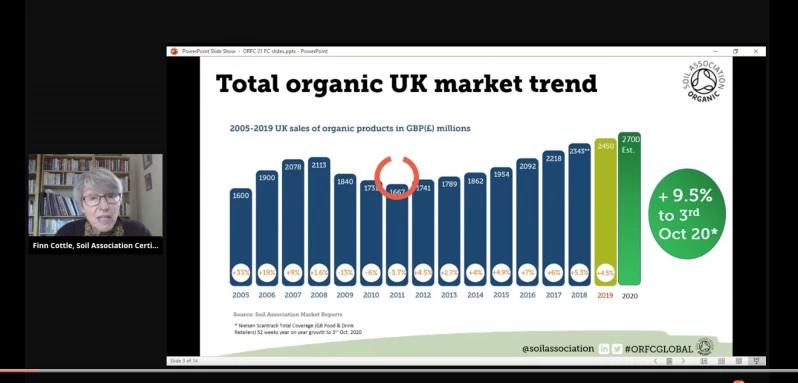
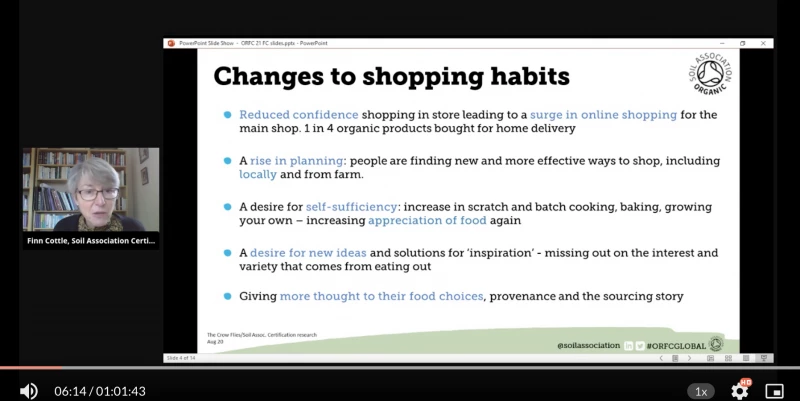
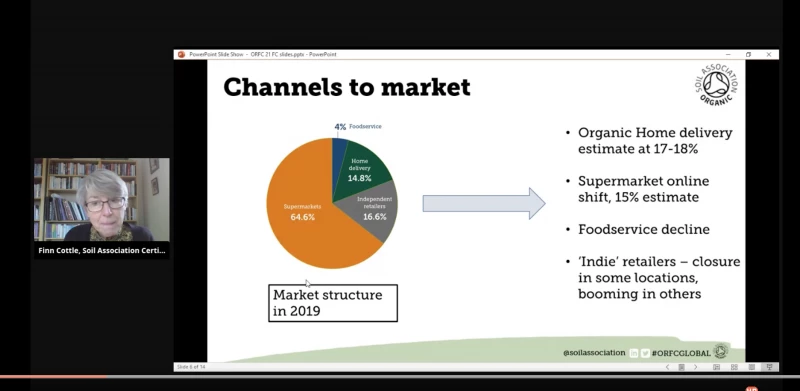
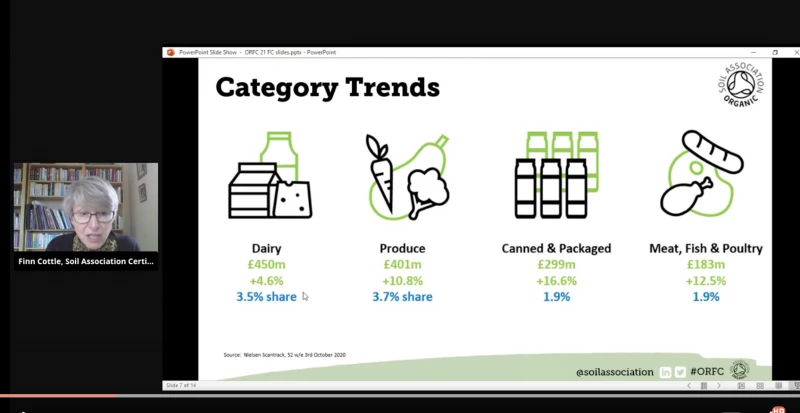
- It was a static year for dairy and it’s the highest on record in terms of volume for organic varieties. Retailers discontinued smaller sizes of milk for efficiency. Dairy alternatives have changed the desire for organic and dairy-free.
- Produce performed better this year with consumers choosing more organic fruit and veg. Introduction of box schemes also increased this section.
- Meat, fish, poultry and eggs were a buoyant section. As supermarkets were enjoying services i.e. restaurants being closed, customers were cooking at home with better quality ingredients to replace these treats. They are "moving up the tiers": buying less, better quality. There is also an increased desire for animal welfare.
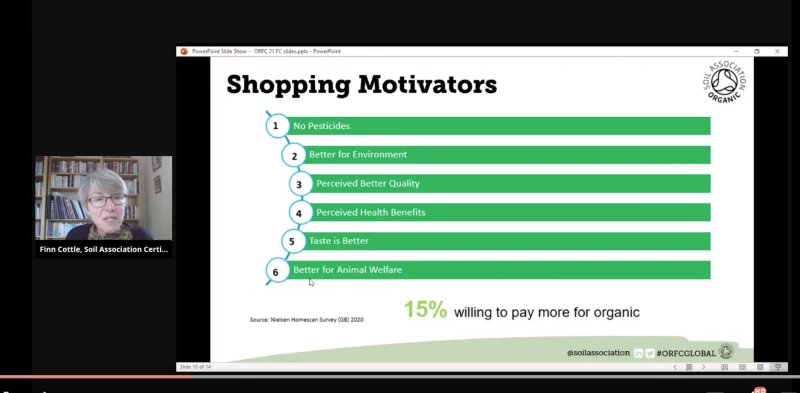
The Ethical Dairy
- The Ethical Dairy employs "nature-based farming".
- They were persuaded to be called ‘ethical’.
- People are interested when they hear that the calves stay with cows for 6 months. After milking, their is still milk left for the calves.
- Due to the way they farm, they get good quality beef from their dairy herd.
- Only grass feeding is viable for that part of Scotland, so don’t buy in supplemental food.
- Their soil organic matter increased, analysed through 25 years worth of data.
Riverford Organic
They are now supplying 50000 homes with fresh organic produce through a box scheme.
>> Watch the full session here. <<
Exploring the Tools that Will Deliver Lasting Change: Labels, Verification, Organic Certification: Is There a Best Option?
"What does it take to deliver meaningful impact on our food production systems? Why is certification important and what other tools are there that will help facilitate better and best practice?"
Agricultural practices are becoming regarded as pivotal when it comes to mitigating the climate, nature and health crises we face, but debate rages about which ones are having meaningful impact. So how can we support farmers to develop farming systems that are a force for good, for all? Like within textiles and fashion, there are a lot of standards and verification procedures to ensure what we're being sold to consume is how it was actually produced.
You can learn about certifications and standards for ethical and sustainable textiles and fashion products in our downloadable glossary here.
Speakers: Louise Luttikholt (IFOAM Organics international), Sarah Compson (Soil Association), Harry Farnsworth (Control Union), Joshua Wickerham (ISEAL)
Chair: Liz Bowles
IFOAM Organics International
- IFOAM Organics International was set up in 1972 by a few organisations to exchange on their practices, which included Soil Association. You write these practices down as standards, to differentiate them within the market, but have a common agreement i.e. on how you produce organic.
- Organic farming is a skill. So you have participatory guarantee systems with farmers and organisations.
- The Government took over the initiative of organisations to legislate, thereby helping the sector as it meant organic was “on it and in it”.
- Not all things in holistic systems can be standardised though, and also when legislative standards come in, organisations like Soil Association put additional standards on it as they want to approve of the legislation. New labels and standards then come up. e.g. organic - farmers and movement decided it themselves.
- Labels are imposed by supermarkets and brands, which means a hurdle for farmers to jump to get their product on the shelves. It could detriment some other issues. We need to be holistic: how can we contribute to improve the standards and therefore systems.
- Example: if it was indicated on all the products that included glyphosate that this was an ingredient, then it would be clear what consumers would choose - rather than labelling as good, we label what is bad.
- See the Four Principles of Organic Agriculture
Control Union
- Control Union audit and advise on standards. When is something verified and when is it certified? Why do we need so many standards?
- There are many variables in farming, so you connect with standards differently as if the farm was a person - i.e. affects of typography, management, climate. So just having one way to manage or advise would make it tricky and could have a negative effect. The rich diversity means we need a wider approach e.g. what works in the "west" may not work for a "developing" nation.
- Standards assessment also came from the Global Gap movement that looks to protects consumers as well as farmers. It came from pressure of food safety, and of animal welfare and origin.
- Financial investors deliver change through backing green practices, so the financial institution will need a third-party verification to highlight how good they're being.
- See textile-specific certifications that Control Union audits here.
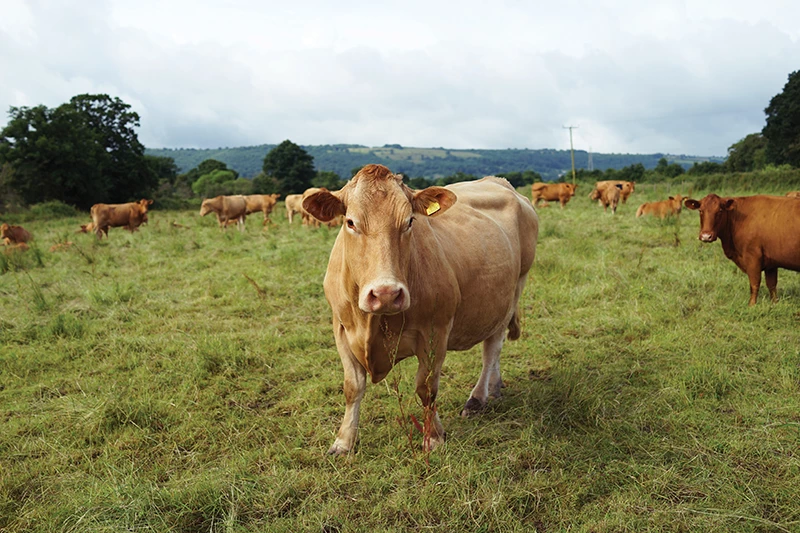
ISEAL Alliance
- ISEAL is a membership organisation for sustainability standards and tools. They assess the credibility of sustainability tools and practices, and offer assurance.
- Impact: a strategy of what the standard is trying to change is important.
- Measuring: are you looking at biodiversity, high conversation?
- Logo: how are you being recognised?
- Certified entities are more likely to retain practices. ISEAL are an innovation in this field e.g. Field To Market uses a data-driven approach (no auditors, they visit farmers and provide meaningful data to farmers to allow them to improve). Collaborative community approaches to self-certifying can also do this.
- Sustainability efforts both negative and positive should be communicated, with mitigation addressed.
- They benchmark different standards, and include "raising the floor" certifications such as Better Cotton Initiative who don’t charge farmers but work with them = participatory agreements.
- Learn about the role of Better Cotton Initative in Mozambique
Soil Association
Sarah is the International Development Manager for Soil Association and Organic Cotton Ambassador for Textile Exchange, but she chairs IFOAM’s Organics Europe Interest Group of Organic Processors and Traders.
- Tools can identify and reward best practice and provide a benchmark with incentives to improve.
- Good tools fundamentally need to reward or help holistic farming practices.
- Systems-level change in order to have change at scale.
- No greenwashing; Tools endorsing business as usual need to be put into context. Will the tool genuinely deliver what it is claiming to do?
- Good tools are participatory, useful with reflections and developments on processes.
"Standards define minimum requirements not maximum potential."
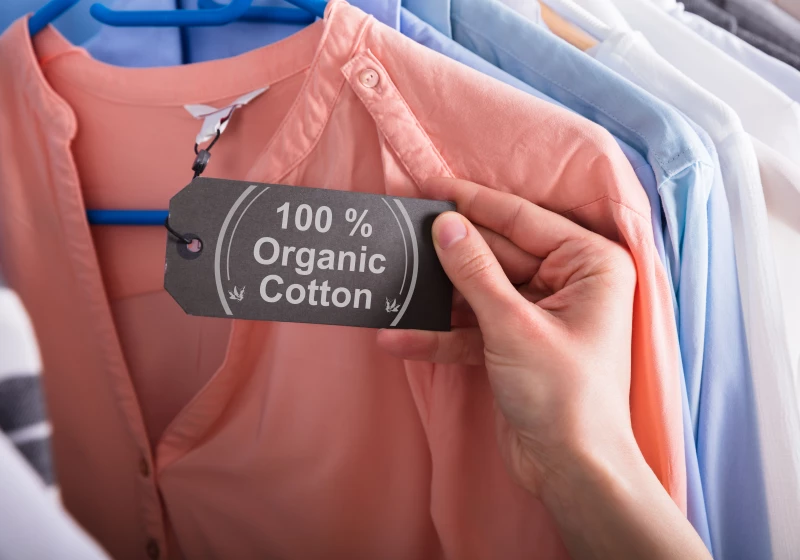
Learn about Soil Association's textile-specific certifications and standards here.
